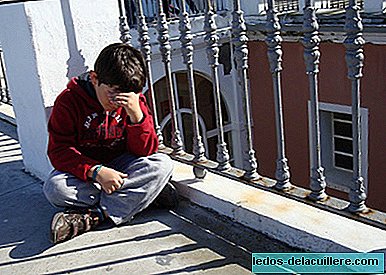
Although the figures dance according to who collects data and analyzes it, the truth is that the economic crisis (and social by extension) continues to be blinded by the most vulnerable - who, in fact, have not generated it, by the way -.
The fact is that if two months ago Save the Children warned us that Spain is the eighth country in the European Union with the highest rates of child poverty; Yesterday Caritas Europe goes further stating that our country is the second in the EU with the highest child poverty rate. Only Romania surpasses us. The risk of poverty among Spanish children under 18 was two years ago nine points above the Union average (at 21.4 percent). The data is also from Eurostat, which generates a bit of confusion (the eighth or the second? Or is it that we are among the 8 that have more poor children but are the second in order?).
But the question is not so much clarified with the figures, but to touch the ground and look at the critical situation of thousands of families. In addition, as Caritas officials say, it's not just about figures but about trying solutions for a society that is mostly more human.
Of course, many will say that they are interested information, or that they are exaggerations; but that the poor are getting poorer every day and the rich are getting richer, this does not escape anyone
Child poverty in Europe
In Brussels they say that the crisis is over (they say, I clarify), but not for everyone because the situation of many people only gets worse: poor needs coverage, shortened health benefits, prolonged lack situations, etc.
Families with children where parents do not work or only one of them with a low salary have become an easy target: The larger the family group, the less there is to distribute. But aren't children the future?
To clarify with the terminology we will say that people at risk of poverty or social exclusion have only 60 percent of average income for the rest of the population; as well as those who only have 40 to 50 percent are considered poor, and with less than 40% we talk about extreme poverty.
The austerity suggested by Europe to the worst-case states is not that it has produced very good results, neither for economic growth, nor for the main stakeholders, who are citizens. Caritas has denounced that economic priorities have been put before social.
And finally it should be clarified that a new social class composed of 'new poor' has been generated, that is, families that formerly belonged to the middle class, and have now gone backwards. This sometimes makes data analysis difficult, because we talk about people who (perhaps) shamefully do not ask the Institutions for help, or it takes a long time to ask for it.
That we have children who eat well thanks to school canteens, or families with young parents who get ahead thanks to the help of grandparents, should give thought.












